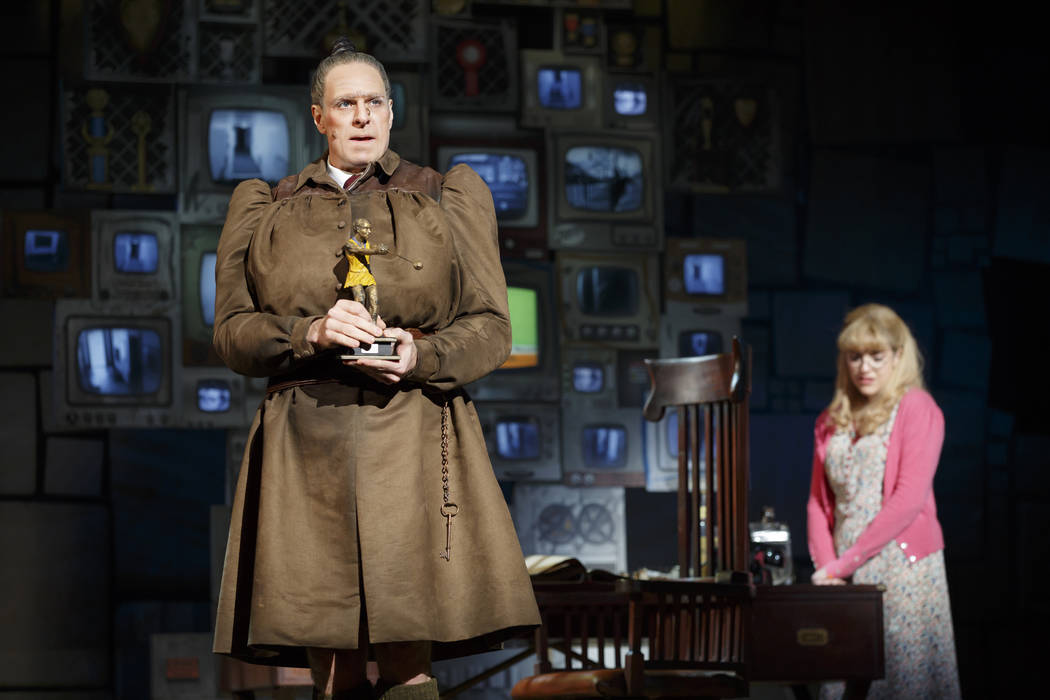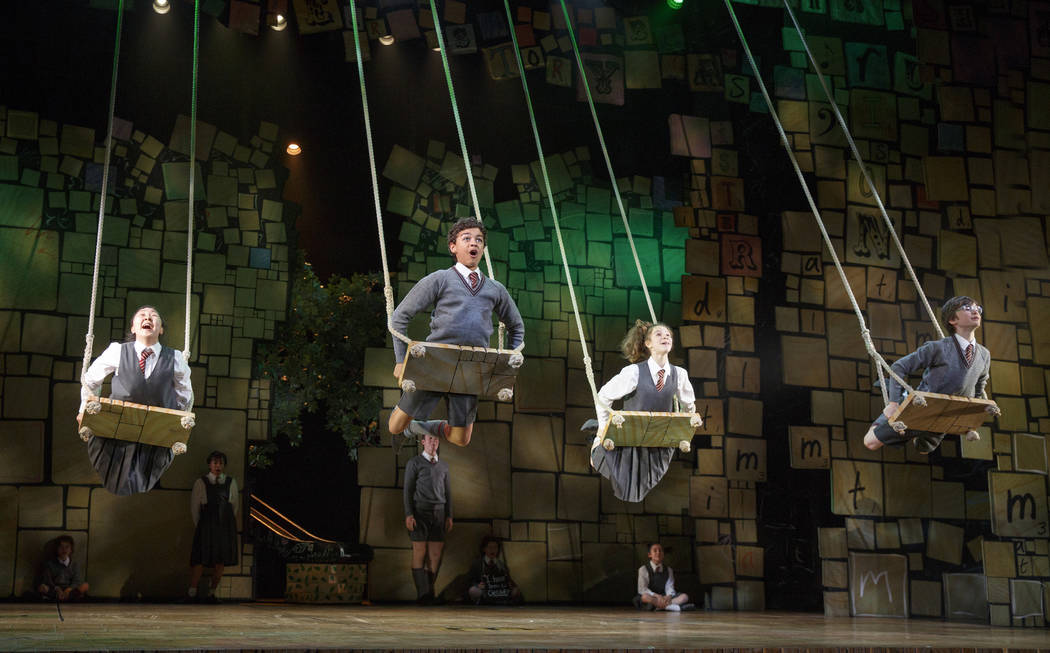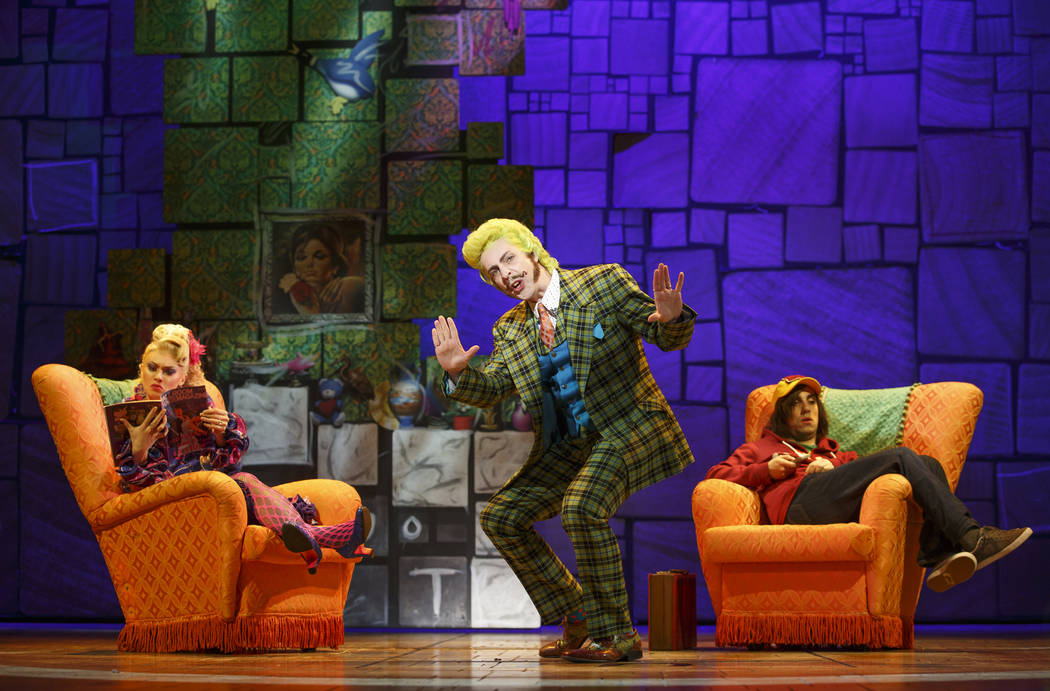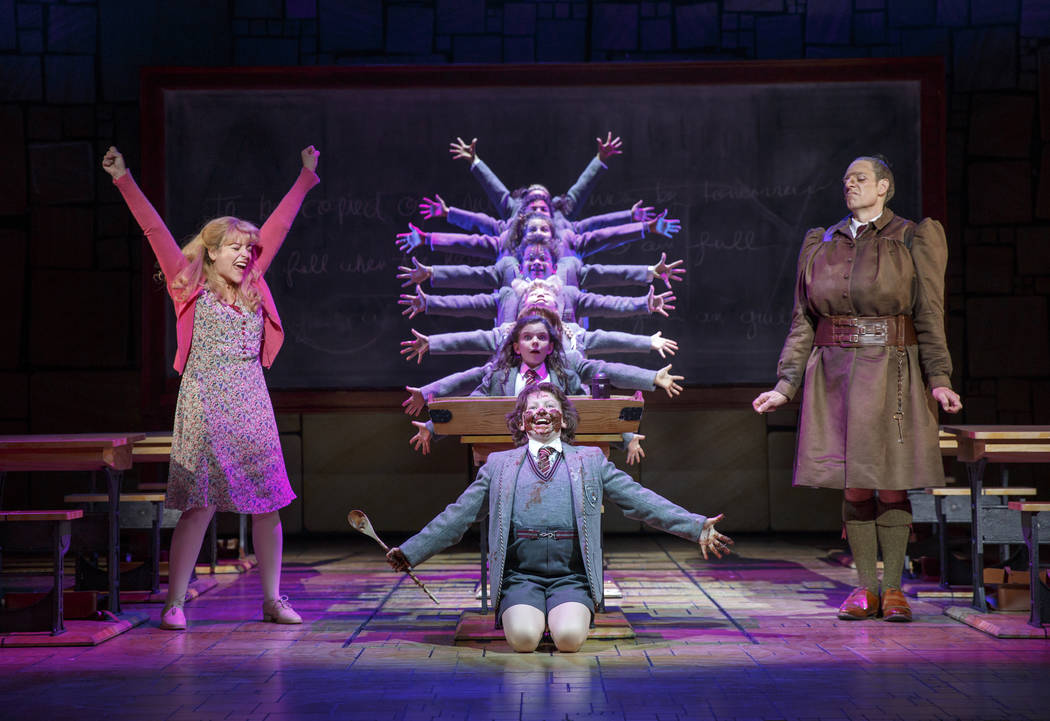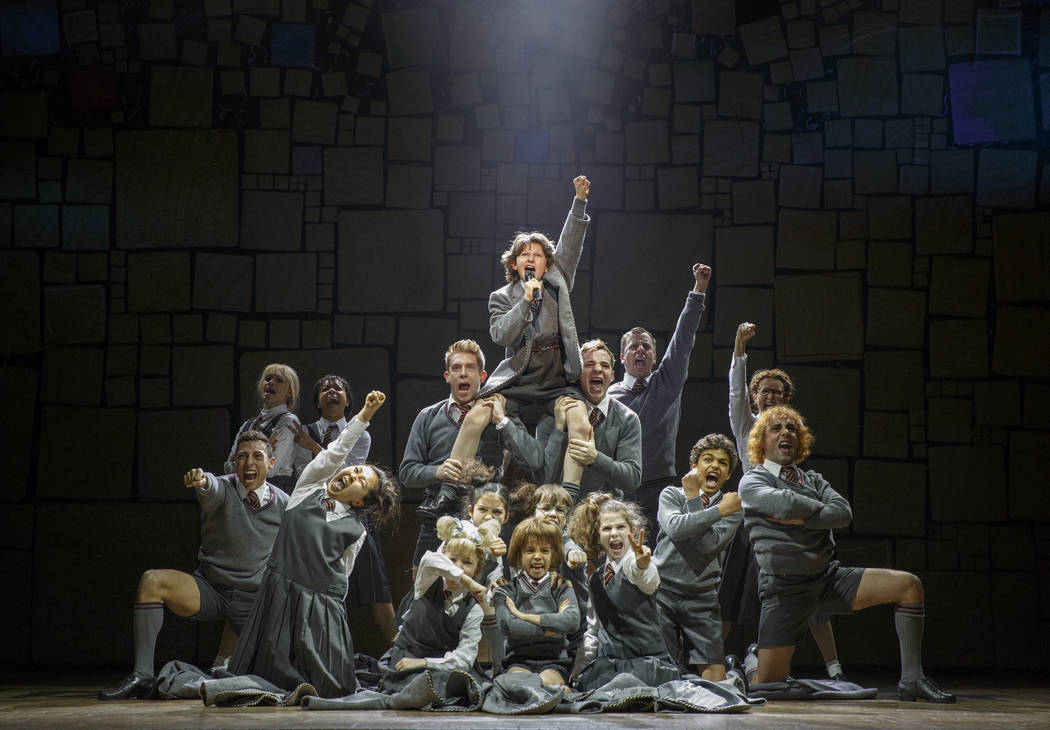Kids star in ‘Matilda the Musical’ tour, which hits Las Vegas on Tuesday
Some kid-centric musicals feature children playing children. (Think “Annie.”) Others — “You’re a Good Man, Charlie Brown,” for example — cast adults as kids.
But “Matilda the Musical,” which opens an eight-performance run Tuesday at The Smith Center, may be the first to start out as one and turn into the other.
Based on Roald Dahl’s darkly comedic tale of empowerment, as a genius 5-year-old helps her schoolmates defy their tyrannical headmistress, “Matilda” started in the adults-play-kids category.
After all, “employing a child is twice as expensive as employing an adult,” notes executive producer Andre Ptaszynski. “It’s a logistical challenge, to be sure.”
But it was only in the final workshop of the musical, originally produced by Britain’s Royal Shakespeare Company, that director Matthew Warchus asked the assembled creators, “What if we had kids playing kids?”
The unanimous response was an immediate no, Ptaszynski recalls. But Warchus suggested trying one workshop, and as soon as “Matilda’s” creators saw that workshop, everyone said, “ ‘Yes, that’s it,’ ” the executive producer adds. “We knew it would have to be the kids. It was so obviously the right thing.”
.embed-container { position: relative; padding-bottom: 56.25%; height: 0; overflow: hidden; max-width: 100%; } .embed-container iframe, .embed-container object, .embed-container embed { position: absolute; top: 0; left: 0; width: 100%; height: 100%; }
Although a few adults supplement “Matilda’s” mostly-kid cast, the touring production is led by three Matildas (Gabby Gutierrez, Jaime MacLean and Jenna Weir) who rotate in the title for two or three performances per week, explains company manager Michael Altbaum, who worked “Matilda’s” four-year Broadway run before hitting the road with the show.
Each of the other child cast members does seven out of eight weekly performances, so everyone needs to know the musical numbers.
Enter Brittany Nichols, children’s dance captain. Nichols, who’s 27 — and 4 feet 10 inches — is also a cast member. As a swing performer, Nichols sometimes goes on in a child’s role, sometimes in an adult’s.
Her primary responsibility, however, is “to keep the choreography clean,” she says, along with teaching new cast members their dance routines.
Prior to every performance, Nichols and cast members rehearse two numbers with special challenges: one set in a gym, which features a vault sequence, and “When I Grow Up,” during which the young performers swing on actual swings.
Because “we just put in a lot of new kids,” Nichols not only taught the new cast members but supervised “a cleanup rehearsal” for the remaining performers.
Altbaum “was thoroughly impressed” with the way “the new kids so absorbed themselves into the company” — and the way the kids leaving the show volunteered to “nurture the new set into their new roles. We’ve really been blessed with an amazing group of kids.”
Perhaps that’s because “they know they’re essential to the show and they rise to the occasion,” he suggests.
Or, as Matilda herself sings, “Even if you’re little you can do a lot, you musn’t let a little thing like ‘little’ stop you … ”
Read more from Carol Cling at reviewjournalcom. Contact her at ccling@reviewjournal.com and follow @CarolSCling on Twitter.
Preview
What: "Matilda the Musical"
When: 7:30 p.m. Tuesday-Thursday; also 7:30 p.m. March 17, 2 and 7:30 p.m. March 18-19
Where: Reynolds Hall, The Smith Center for the Performing Arts, 361 Symphony Park Ave.
Tickets: $29-$127 (702-749-2000, www.thesmithcenter.com)
All in the family
The young performers in "Matilda the Musical" travel with a parent or guardian.
But there's a parental feeling with all the adults in the company, according to company manager Michael Altbaum. "As a whole, we are one company and we really care about these kids."
The tour employs two additional guardians, along with two tutors who also can act as guardians, Altbaum notes.
The young cast members' schooling "varies based on the schedule," he says. "They're in rehearsal for blocks of time, so we sometimes do school a little later in the day."
The class size also varies, Altbaum adds. "Sometimes it's one on one, sometimes it's five on one." And because performers are different ages and come from different places, "the kids get specialized tutoring, even in a group setting."
Being on the road offers another educational opportunity for the kid performers, in Altman's view.
"The kids have the ability to see a new city every week. It's an invaluable lesson."

